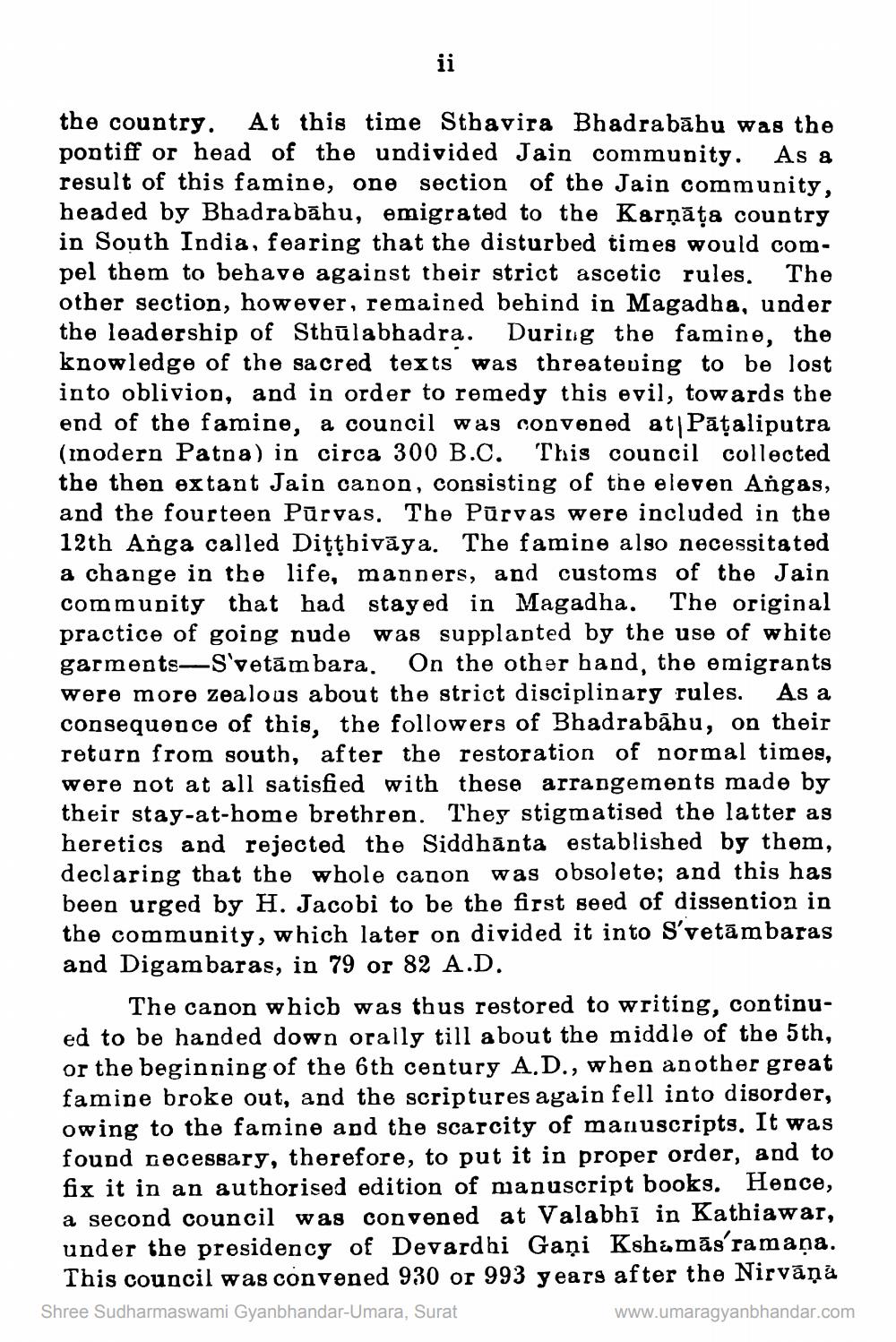________________
the country. At this time Stbavira Bhadrabābu was the pontiff or head of the undivided Jain community. As a result of this famine, one section of the Jain community, headed by Bhadrabāhu, emigrated to the Karņāța country in South India, fearing that the disturbed times would compel them to behave against their strict ascetic rules. The other section, however, remained behind in Magadha, under the leadership of Sthūlabhadra. During the famine, the knowledge of the sacred texts was threatening to be lost into oblivion, and in order to remedy this evil, towards the end of the famine, a council was convened at Pāțaliputra (inodern Patna) in circa 300 B.C. This council collected the then extant Jain canon, consisting of the eleven Angas, and the fourteen Pūrvas. The Pūrvas were included in the 12th Anga called Diţtbivāya. The famine also necessitated a change in the life, manners, and customs of the Jain community that had stayed in Magadha. The original practice of going nude was supplanted by the use of white garments—S'vetām bara. On the other hand, the emigrants were more zealous about the strict disciplinary rules. As a consequence of this, the followers of Bhadrabābu, on their return from south, after the restoration of normal times, were not at all satisfied with these arrangements made by their stay-at-home brethren. They stigmatised the latter as heretics and rejected the Siddhānta established by them, declaring that the whole canon was obsolete; and this has been urged by H. Jacobi to be the first seed of dissention in the community, which later on divided it into S'vetāmbaras and Digambaras, in 79 or 82 A.D.
The canon whicb was thus restored to writing, continued to be handed down orally till about the middle of the 5th, or the beginning of the 6th century A.D., when another great famine broke out, and the scriptures again fell into disorder, owing to the famine and the scarcity of manuscripts. It was found necessary, therefore, to put it in proper order, and to fix it in an authorised edition of manuscript books. Hence, a second council was convened at Valabhi in Kathiawar, under the presidency of Devardhi Gani Kshamās'ramana.
This council was convened 930 or 993 years after the Nirvāņā Shree Sudharmaswami Gyanbhandar-Umara, Surat
www.umaragyanbhandar.com




